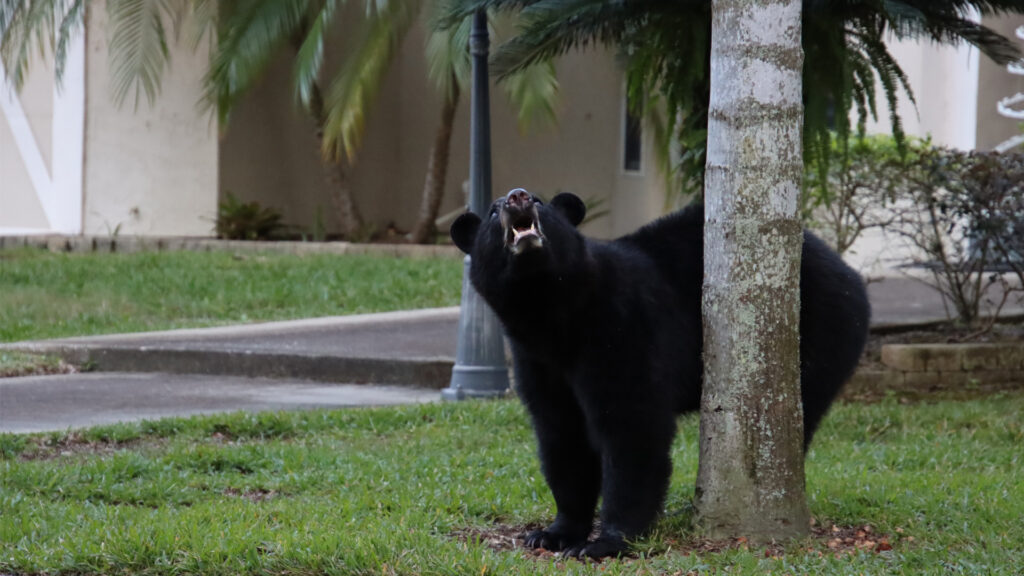By Kate MacFall, Humane Society of the United States
With many critical issues facing our state, some lawmakers are focused on making it easier to kill bears. Florida’s black bears, beloved by a majority of voters, are one of our country’s most photographed and watched animals. They’re known for their incredible intelligence. Despite their importance to people and ecosystems, some Florida lawmakers are ready to paint a bull’s-eye on bears’ backs.

Essentially fast-tracking the killing of black bears, House Bill 87 and Senate Bill 632 would allow people to kill unlimited numbers of black bears under the guise of protecting property and safety. But killing bears to resolve human-bear conflicts is short-sighted. Biologists have found that almost all human-bear conflicts revolve around food attractants, primarily unsecured garbage cans, outdoor pet food and bird feeders.
These bills do nothing to deter residents from leaving out attractants — which might actually do something to curb the problem. Instead, it allows people to kill bears who are lured in by them. If we don’t take steps to limit attractants, this bill will do nothing except create an endless cycle of needless bear killing.
Promoting the idea that it is acceptable to shoot bears on sight creates hazards for humans and bears — especially if people are not properly trained in wildlife behavior, conflict resolution or even gun safety where neighbors are concerned. Instead, I urge our lawmakers to focus on educating communities about bear-smart behavior and coexistence strategies and providing funds for bear-wise trash cans to critical Panhandle counties.
Even without HB 87 and SB 632 in place, black bears’ prospects for survival in Florida are already challenged by the loss of 83% of their former habitat due to human development. Because of this, it is no wonder that bears will inevitably encounter humans. We cannot kill our way out of human-bear conflicts. It is essential that people do their part by taking easy, commonsense steps to eliminate food attractants and remove bird feeders and outdoor pet food. Securing garbage with bear-resistant cans and protecting bee hives, farm animals and their feed with electric fencing are easy actions.

In Florida, bears mainly rely on forest habitats and also saw palmetto berries for sustenance. Florida black bears are 80% vegetarian, with about 15% of their diet deriving from insects, and the last 5% from meat.
Bears are critical to Florida’s ecosystem — they spread even more seed than birds. They’re also extremely family-oriented, as mother bears will spend up to two years taking care of their cubs. Because bears have small litters and are extremely slow to reproduce, letting individuals to kill them for any perceived “threat” would allow unacceptable losses to their population.
We must act responsibly by taking the necessary steps to remove food attractants and humanely coexist with Florida’s beloved bears. Based on the committee hearings, it’s likely this bill will pass the Legislature even with bipartisan opposition. Please join me in respectfully urging Gov. Ron DeSantis to veto HB 87 and SB 632.
Kate MacFall is the Florida state director of the Humane Society of the United States. This opinion piece was originally published by the Tampa Bay Times, which is a media partner of The Invading Sea.
If you are interested in submitting an opinion piece to The Invading Sea, email Editor Nathan Crabbe at ncrabbe@fau.edu. Sign up for The Invading Sea newsletter by visiting here.



